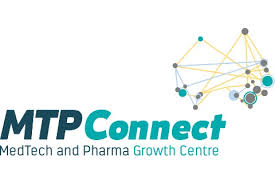
Posted: 29 August 2023
As the second phase of the BioMedTech Horizons (BMTH) program moves to completion, a new report has captured the outcomes of the 38 innovations supported through the program.
Launched in May 2017, the BMTH program is an initiative of the Medical Research Future Fund (MRFF) designed and delivered by MTPConnect to support early-stage medical device developments to move towards commercialisation.
The impact report covers the second, third and fourth rounds of BMTH which saw $30.3 million in funding awarded, leveraging an additional $36 million in contributions from industry.
MTPConnect CEO Stuart Dignam said the BMTH program aimed to increase the number of medtech innovations reaching proof-of-concept stage and to de-risk projects for private investment.
“Companies supported through this phase of BMTH have really captured the interest of investors, taking the $30.3 million in program funding and going on to secure at least $479 million of further flowon and external investment.
“Seventy-nine per cent of the projects have so far been successful in securing flow-on funding and 92 per cent of that has been secured from seed, angel, private investments or series A, B or C financing.
“And with its focus on commercial outcomes, the program has supported the creation of 306 jobs, seen 87 medical technologies progressed towards commercialisation, 27 human clinical studies and trials initiated or completed, and eight technologies receive marketing approval.
“It has been an immense achievement from these companies who delivered much of their work during COVID-19 pandemic restrictions, with the first lockdowns occurring within weeks of round 2 starting.
“These outcomes show what can be achieved by backing start-ups, entrepreneurs and SMEs to bring life-saving medical products from research labs to market: stronger companies, a more
resilient economy and healthier communities,” Mr Dignam said.
BMTH-supported projects spanned a broad range of therapeutic areas and technology types including ophthalmology, cardiovascular disease, orthopaedics, neonatal care, oncology and trauma. They include rehabilitation, diagnostic, digitally enabled and implanted medical devices, used in hospital environments and at home.
To date, notable achievements include eight products that are currently in use including:
- 3DMorphic makes patient-specific 3D-printed titanium implants for spinal fusion. 3DMorphic has achieved a world-leading turn-around time of five days to design and manufacture patient specific implant devices, achieving TGA regulatory approval and ARTG listing for three
products. These products have been used in more than 100 patient cases. - Artrya secured regulatory approval in Australia, New Zealand, the UK and Europe for its cloudbased, AI-driven Salix software product used to identify high-risk vulnerable plaque formation in patients with coronary heart disease at risk of heart attack.
- Neuromersiv received TGA approval of its Ulysses virtual reality rehabilitation system for upper limb rehabilitation following stroke, acquired brain injury or spinal cord injury. The system is in use in rehabilitation clinics in Australia and the UK.
- ZiP Diagnostics received TGA approval for the export of the ZiP-CoVx-P2 assay test and export of the ZiP-P2 instrument, and “Manufacturers’ Evidence” approval, which supports the export of the ZiP Diagnostics test to the EU. ZiP Diagnostics also received European registration/approval of the ZIP-CoV-2 assay. The ZiP Diagnostics platform has comparable sensitivity to lab-based PCR tests, but the tests can be done in a fraction of the time and cost, and at the point of care. The instrument and the diagnostic assay are manufactured in Australia but are currently not available or approved for use in Australia.
- Seer Medical launched the Seer Health App, a digital diary that tracks historical epilepsy seizure events and interventions such as medication usage and can forecast epilepsy seizure risk profiles for users incorporating physiological signals from the FitBit smart watch. It is the first epilepsy risk forecasting tool available to patients.
The BMTH program provided funding up to $1 million per project (or up to $800,000 in Round Four) as a non-dilutive investment, allowing companies to retain equity and ownership and support future growth projects.
Funding rounds were independently assessed involving a pool of 31 national and international medical device commercialisation leaders.
Further details about all the 38 projects and the impact of the program are outlined in the BMTH Impact Report, which was released today to coincide with the BMTH Finale event being held in Melbourne to celebrate the completion of the program.
The outcomes detailed in this report build on the success of BMTH1 (see report published in November 2021) and mean the $45 million BMTH program (rounds 1–4) has contributed to more than $590 million flowing into Australia’s medical technology sector.



